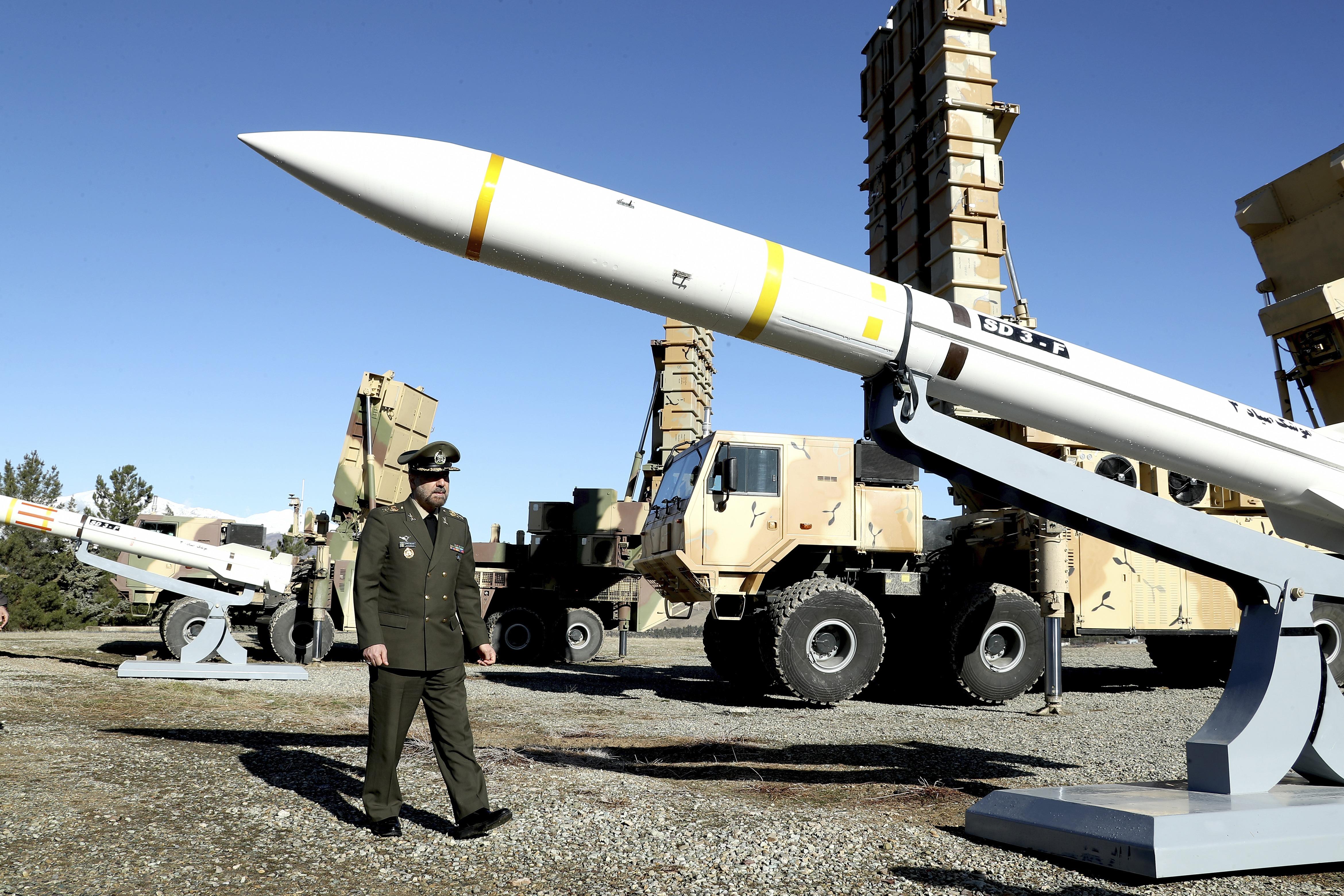 In this image released by the Iranian Defense Ministry on Feb 17, 2024, Defense Minister Gen. Mohammad Reza Gharaei Ashtiani reviews the domestically built Arman air defense system during its unveiling ceremony with a Sayyad-3 missile, in the foreground, in Iran. (PHOTO / IRANIAN DEFENSE MINISTRY VIA AP)
In this image released by the Iranian Defense Ministry on Feb 17, 2024, Defense Minister Gen. Mohammad Reza Gharaei Ashtiani reviews the domestically built Arman air defense system during its unveiling ceremony with a Sayyad-3 missile, in the foreground, in Iran. (PHOTO / IRANIAN DEFENSE MINISTRY VIA AP)
TEHRAN - Iran denied on Friday Western media reports that it had sold ballistic missiles to Russia for use against Ukraine, saying it was morally bound to avoid fuelling the conflict.
ALSO READ: Iran unveils homegrown anti-ballistic missile
Iran's UN mission said in a statement on social media platform X that Tehran had no legal restrictions on ballistic missile sales, but felt obligated to refrain from weapons transactions during the Russia-Ukraine conflict.
The Biden administration warned Iran on Thursday of a "swift and severe" response from the international community if it had provided Russia with ballistic missiles
"This is rooted in Iran's adherence to international law and the UN Charter," the statement said.
Reuters reported on Wednesday, citing six sources, that Iran had supplied Russia with a large number of powerful surface-to-surface ballistic missiles.
READ MORE: Iran says Israel behind gas pipeline blasts
The Biden administration warned Iran on Thursday of a "swift and severe" response from the international community if it had provided Russia with ballistic missiles.
White House National Security spokesman John Kirby said at a virtual press briefing that Washington had not confirmed that missiles had moved from Iran to Russia.
READ MORE: Iran warns of response to potential attacks on its ships
"For our part, we will take this matter to the UN Security Council," he added. "We will implement additional sanctions against Iran. And we will coordinate further response options with our allies and partners in Europe and elsewhere."
Ukraine and Western countries have accused Iran of exporting suicide drones to Russia for use in the conflict in Ukraine. Iran has repeatedly dismissed the accusations as "baseless", saying it had given only "a limited number" of drones to Russia months before the war started.


